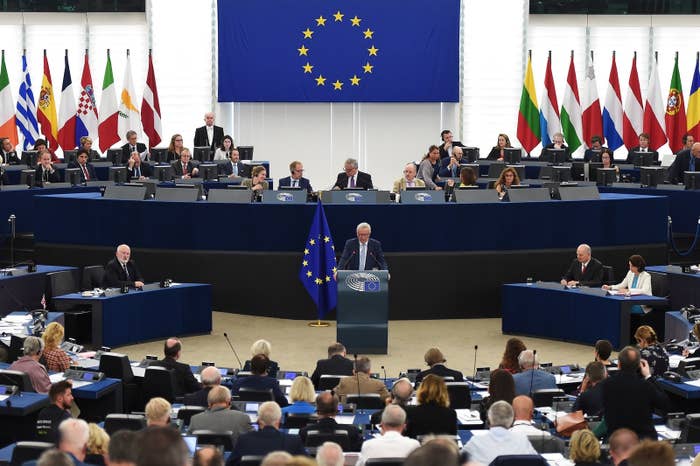A law will forever transform the internet and make building a successful tech company. The Digital Markets Act of the European Union entered into force on November 1.
Beginning a process that is expected to compel Amazon, Meta, and Google, to make their platforms open and interoperable by 2023.
As a new reminder, Europe has regulated tech corporations considerably more vigorously than the US. This could result in significant changes to what individuals can do with their gadgets and apps.
A seasoned EU official who assisted in passing the DMA earlier this year, Gerard de Graaf, said, “we expect the consequences to be significant.”
Last month, he was appointed director of a new EU office in San Francisco. The office was formed partly to inform Big Tech corporations of the law’s implications. Instead, according to De Graaf, they will be compelled to breach their walled gardens.
De Graaf explains the rules of the Internet in Europe
In a conference room, de Graaf explains, “If you have an iPhone, you should be able to download apps from the App Store as well as from other app stores or the internet.”
The DMA demands monopolistic platforms to open their doors to smaller rivals, and it may also require Meta’s WhatsApp to accept conversations from rival applications.
Although the DMA goes into effect the following week, IT platforms must conform immediately.
The EU must first determine which businesses are well-established and substantial enough to be categorized as “gatekeepers” subject to the strictest regulations.

De Graaf anticipates the group, which will be revealed in the spring, would consist of roughly a dozen businesses. Then, those gatekeepers will have six months to comply.
Marlena Wisniak, who oversees work on technology at civil liberties organization the European Center for Not-for-Profit Law, views the EU’s recent presence in the neighborhood of the IT industry as fresh evidence of its commitment to influencing tech policy internationally.
De Graaf contends that stricter regulations for digital companies are required for society to fully benefit from technology and safeguard consumers and other businesses from dishonest tactics.
AI Bill of Rights
He has criticized a non-binding AI Bill of Rights that the White House recently produced, arguing that a lack of strict regulation can erode the public’s trust in technology.
According to him, AI will only be successful if citizens lose faith in it because they think it discriminates against them and produces undesirable results for their lives.
According to her, De Graaf should use some influence to help those who depend on Big Tech platforms outside the US and EU because they are rarely represented in tech diplomacy.
Additionally, Wisniak hopes that the EU’s digital envoys can avoid the drawbacks that have thwarted the goals of some earlier arrivals to Silicon Valley.
Silicon Valley has significantly more CEOs, business owners, and investors than policy specialists. I hope that the IT hype is okay with EU policymakers, she adds. “The story of the tech bros is true.”











